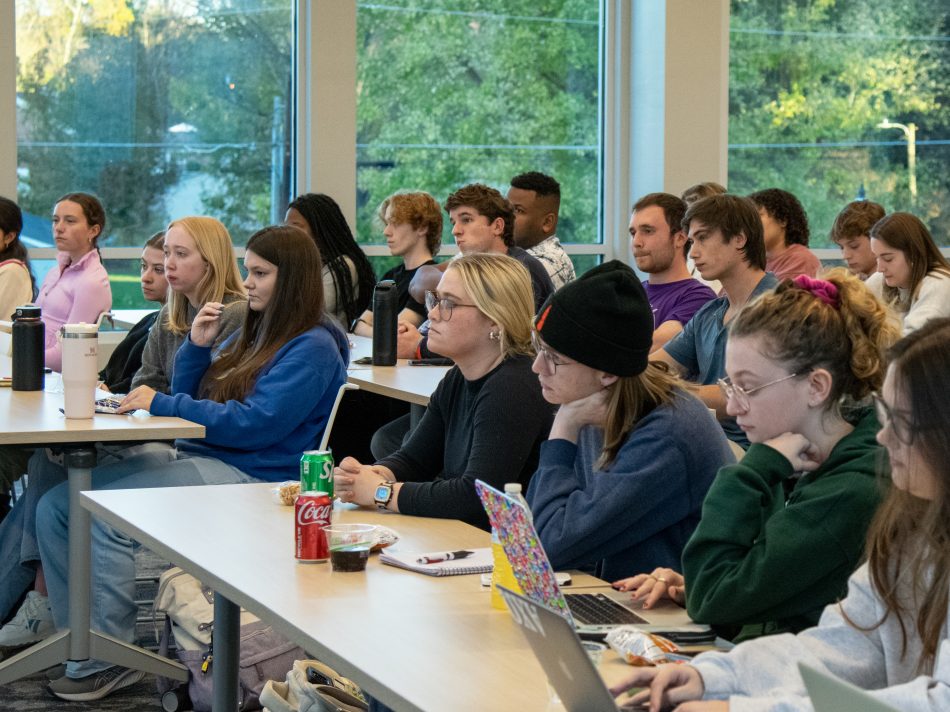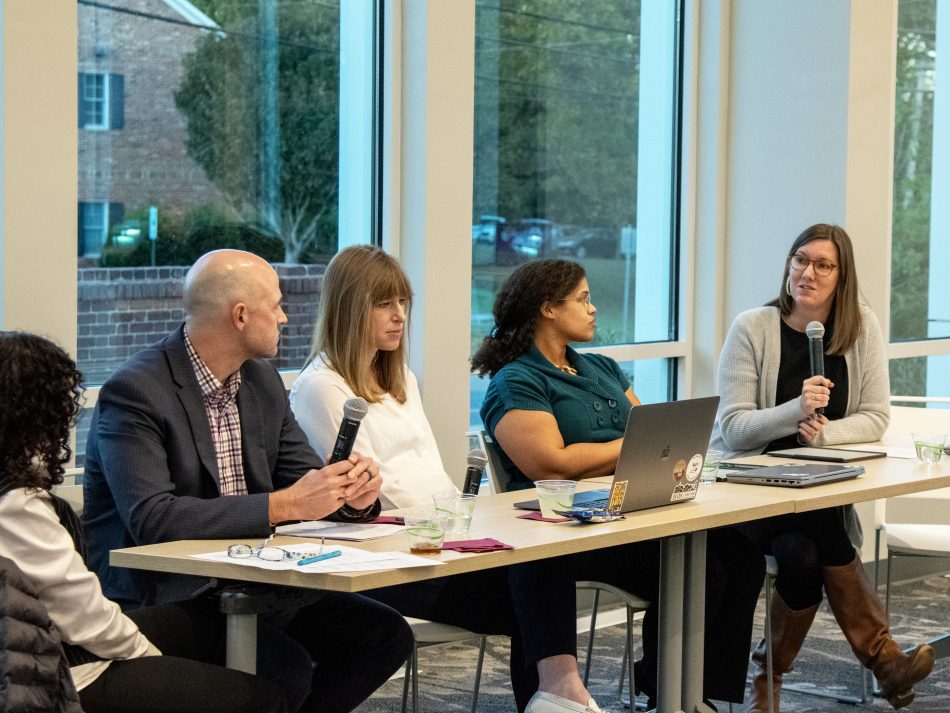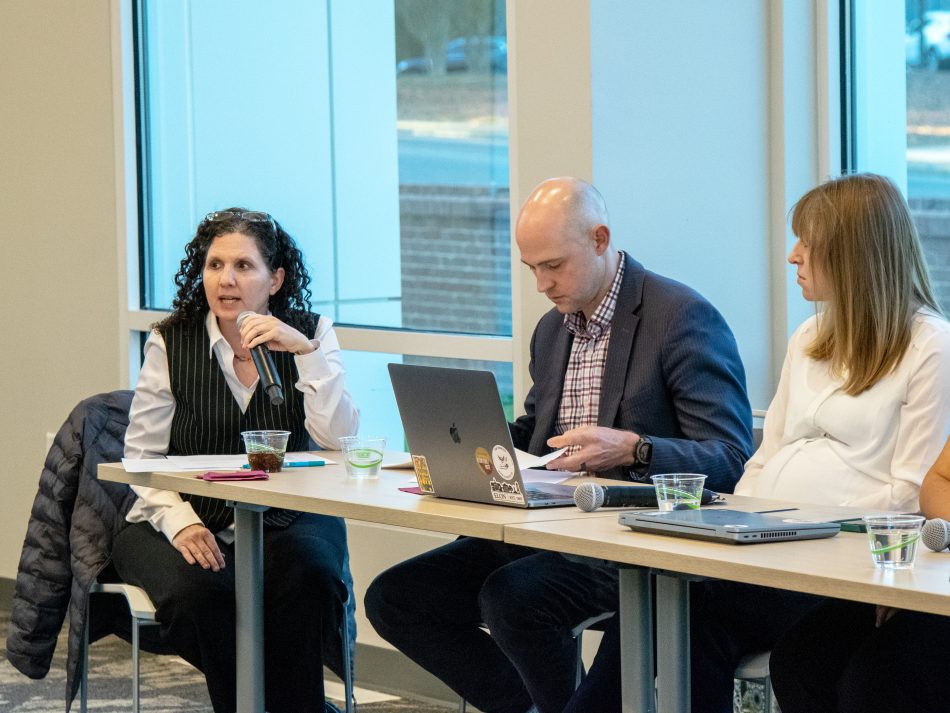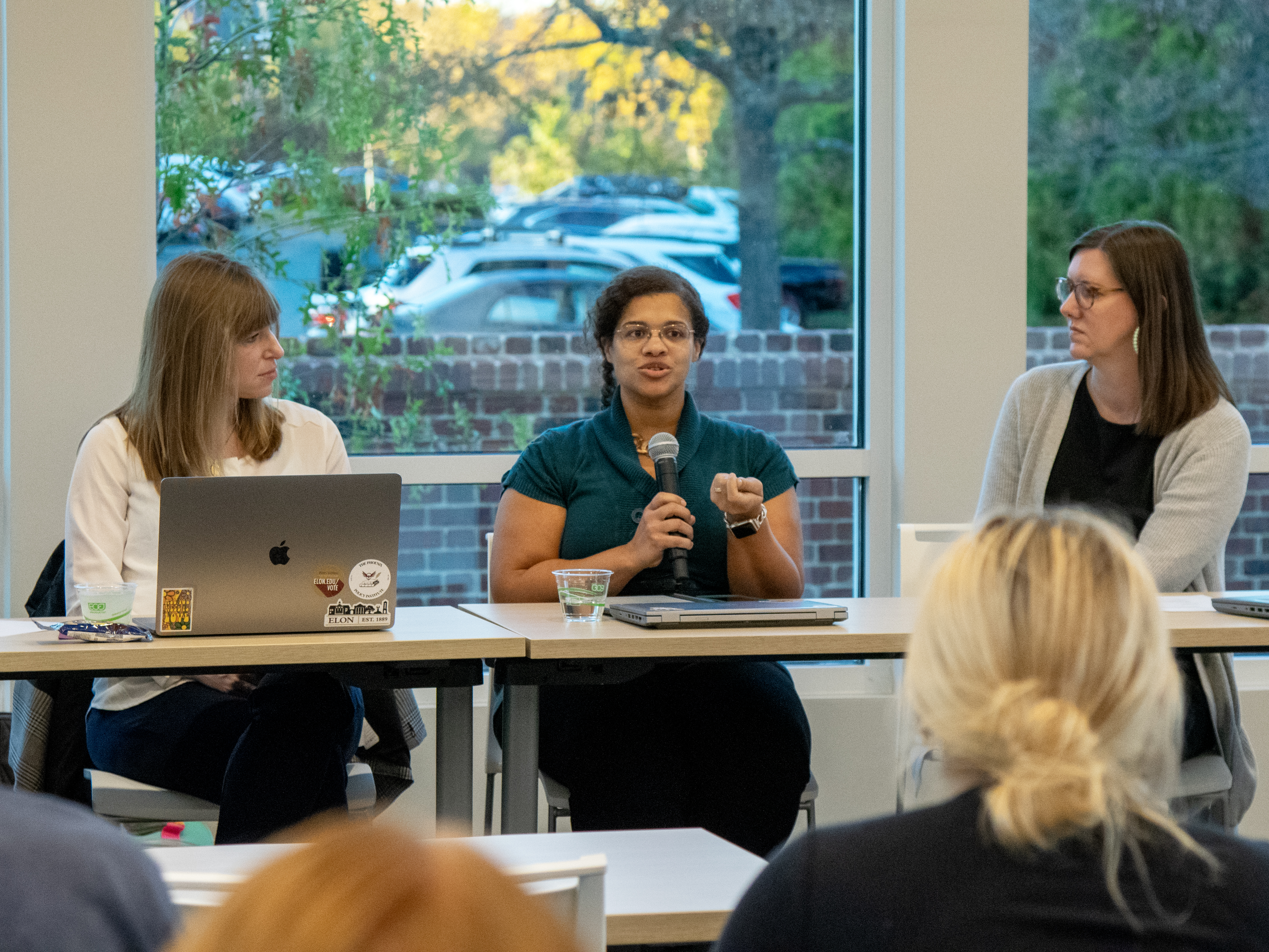Faculty in the Department of Political Science and Public Policy discussed the results of the 2024 elections and potential impacts on state and national politics.
Faculty in Elon University’s Department of Political Science and Public Policy shared key takeaways from the Nov. 5 elections with the campus community during “After the Vote.”
In the panel discussion and Q&A with students, five professors explained global political trends, dug into national polling and election outcomes, and described some of what they will be watching as President-elect Donald Trump again takes office. All tended to agree that the economy and inflation swayed voters towards the Republican presidential candidate.

The event was held in East Neighborhood Commons on Tuesday, Nov. 12. Carrie Eaves, associate professor and chair of the Department of Political Science and Public Policy, moderated the discussion. It was sponsored by the department and the Phoenix Policy Institute, Elon’s student-led non-partisan think tank housed within the department. Panelists included:
- Dillan Bono-Lunn, assistant professor of political science and public policy;
- Jessica Carew, associate professor of political science and public policy;
- Jason Husser, professor of political science and public policy, director of the Elon Poll and assistant provost for academic excellence and integrity
- Safia Swimelar, professor of political science and public policy.
National polling was mainly accurate, said Husser, who runs the Elon Poll and whose expertise is in scientific political polling. He acknowledged ongoing challenges in reaching Trump’s supporters despite efforts to improve polling methods since 2016.
“Polls were showing very likely signs that Trump was going to win,” Husser said. “This was a historically accurate cycle for polls, and so far the average error for polls in swing states was 1.9%,” less than the standard 5% margin of error for polls.

Swimelar contextualized the results within global political shifts, noting that, since the pandemic, ruling parties have faced backlash across advanced economies.
“In almost every advanced or developed country, the incumbent party in power — whether on the right or left — lost control of the government or their party lost more than they had previously,” Swimelar said, citing changes in Great Britain, South Korea, Argentina, India and Germany.
They also examined why Vice President Kamala Harris struggled to mobilize voter support. They cited President Joe Biden’s late exit from the race, the lack of a traditional primary, and her brief 110-day candidacy as among the hurdles. Carew questioned how much racial and gender biases may have influenced turnout.
Panelists were unsurprised by the U.S. Senate flipping to Republican control, with Democrats defending seats in red states, and were watching the balance of the U.S. House of Representatives, which appeared to have since swung to Republicans this week. They also weren’t surprised by the relatively common trend of states like North Carolina voting for a different party for governor than president.
Bono-Lunn said that the 2024 elections more closely resembled the 2016 elections, suggesting that the parties are redefining their identities.

“Maybe 2020 was an outlier,” Bono-Lunn said. “This is speaking to a trend of review of the status quo of neoliberalism. Whether we get a policy platform that responds to the material concerns of voters, it’s an acknowledgement of a lot of discontent from 30 to 50 years of economic policy.”
In North Carolina, they highlighted Democrats wins in the governorship and lieutenant governorship, and a weakened Republican membership in the General Assembly. Husser was watching what the GOP will do during the final weeks of its supermajority in the state.
Looking ahead, professors discussed Trump’s likely policy moves. Swimelar pointed to potential increases in deportations and tariffs, which could spark international tensions and raise inflation. Husser predicted largescale deregulation efforts around the environment and consumer safety, and movement away from the federalization of education. Bono-Lunn was watching Trump’s cabinet picks, which as of Tuesday were “trending more neoconservative, like in 2016.” Carew voiced concerns about possible cuts to Medicaid and the replacement of non-partisan civil servants with political appointees in government bureaucracy, potentially harming expertise and consistency in the federal government.
“We should all be paying attention, no matter the outcome of the election,” Carew said. “The election should be the beginning of your engagement, not the endpoint.”



